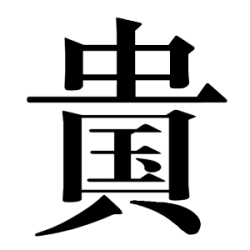“Expensive country”的版本间的差异
来自China Digital Space
| 第3行: | 第3行: | ||
[[File:expensive country.png|250px|thumb|left|''“Expensive country.”'']] A sarcastic reference to China. This term was popularized because of discontent over high prices; ''gui guo'' is a country in which basic needs like housing, fuel, power, and healthcare, are all too costly. | [[File:expensive country.png|250px|thumb|left|''“Expensive country.”'']] A sarcastic reference to China. This term was popularized because of discontent over high prices; ''gui guo'' is a country in which basic needs like housing, fuel, power, and healthcare, are all too costly. | ||
| − | ''Gui'' is also the honorific of “your”; ''gui guo,'' literally “your honorable country,” is used in diplomatic speech. Using ''gui guo'' in reference to China separates the speaker from his country, in opposition to 我国 wǒ guó, “our country.” [http://chinadigitaltimes.net/2013/01/in-chinas-cyberspace-dissent-speaks-code Xiao Qiang and Perry Link explain] that in this turn of phrase, netizens imply that “the state that belongs to you rulers, not to me.” | + | ''Gui'' is also the honorific form of “your”; ''gui guo,'' literally “your honorable country,” is often used in diplomatic speech. Using ''gui guo'' in reference to China separates the speaker from his country, in opposition to 我国 wǒ guó, “our country.” [http://chinadigitaltimes.net/2013/01/in-chinas-cyberspace-dissent-speaks-code Xiao Qiang and Perry Link explain] that in this turn of phrase, netizens imply that “the state that belongs to you rulers, not to me.” |
[[Category: Grass-Mud Horse Lexicon]] | [[Category: Grass-Mud Horse Lexicon]] | ||
2013年2月6日 (三) 15:54的版本
贵国 (guì guó): expensive country
A sarcastic reference to China. This term was popularized because of discontent over high prices; gui guo is a country in which basic needs like housing, fuel, power, and healthcare, are all too costly.
Gui is also the honorific form of “your”; gui guo, literally “your honorable country,” is often used in diplomatic speech. Using gui guo in reference to China separates the speaker from his country, in opposition to 我国 wǒ guó, “our country.” Xiao Qiang and Perry Link explain that in this turn of phrase, netizens imply that “the state that belongs to you rulers, not to me.”





